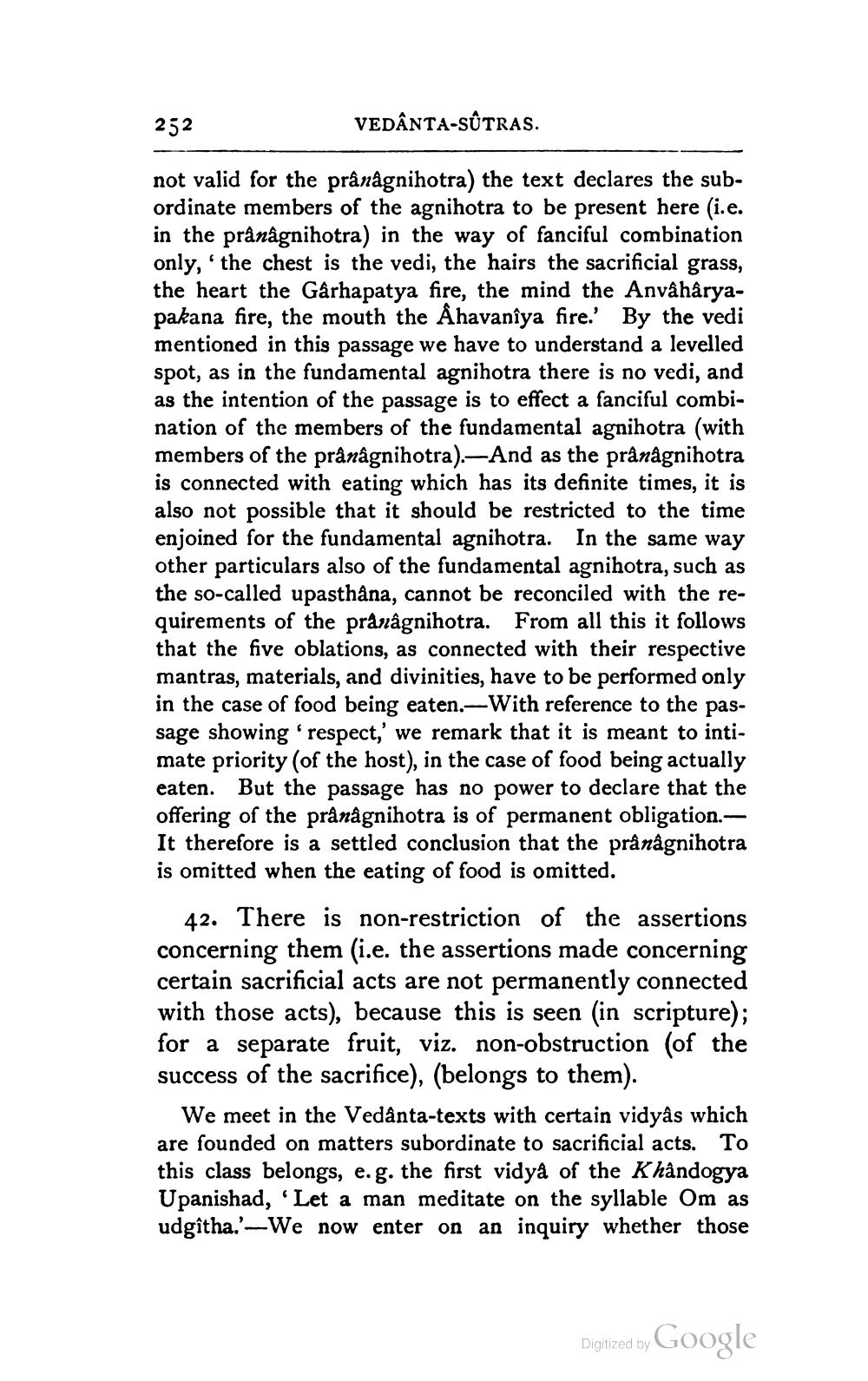________________
252
VEDÂNTA-SÛTRAS.
not valid for the prânågnihotra) the text declares the subordinate members of the agnihotra to be present here (i.e. in the prânâgnihotra) in the way of fanciful combination only, the chest is the vedi, the hairs the sacrificial grass, the heart the Gârhapatya fire, the mind the Anvâhâryapakana fire, the mouth the Åhavanîya fire. By the vedi mentioned in this passage we have to understand a levelled spot, as in the fundamental agnihotra there is no vedi, and as the intention of the passage is to effect a fanciful combination of the members of the fundamental agnihotra (with members of the prânâgnihotra).--And as the prânågnihotra is connected with eating which has its definite times, it is also not possible that it should be restricted to the time enjoined for the fundamental agnihotra. In the same way other particulars also of the fundamental agnihotra, such as the so-called upasthana, cannot be reconciled with the requirements of the prânâgnihotra. From all this it follows that the five oblations, as connected with their respective mantras, materials, and divinities, have to be performed only in the case of food being eaten.-With reference to the passage showing respect,' we remark that it is meant to intimate priority (of the host), in the case of food being actually eaten. But the passage has no power to declare that the offering of the prânågnihotra is of permanent obligation.It therefore is a settled conclusion that the prânâgnihotra is omitted when the eating of food is omitted.
42. There is non-restriction of the assertions concerning them (i.e. the assertions made concerning certain sacrificial acts are not permanently connected with those acts), because this is seen in scripture); for a separate fruit, viz. non-obstruction (of the success of the sacrifice), (belongs to them).
We meet in the Vedanta-texts with certain vidyâs which are founded on matters subordinate to sacrificial acts. To this class belongs, e.g. the first vidyå of the Khândogya Upanishad, 'Let a man meditate on the syllable Om as udgîtha.'-We now enter on an inquiry whether those
Digitized by
Digilzed by Google




